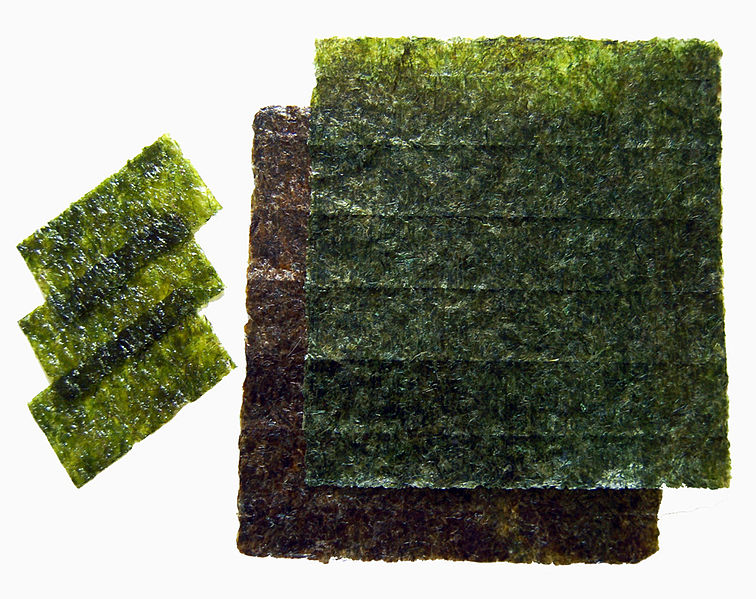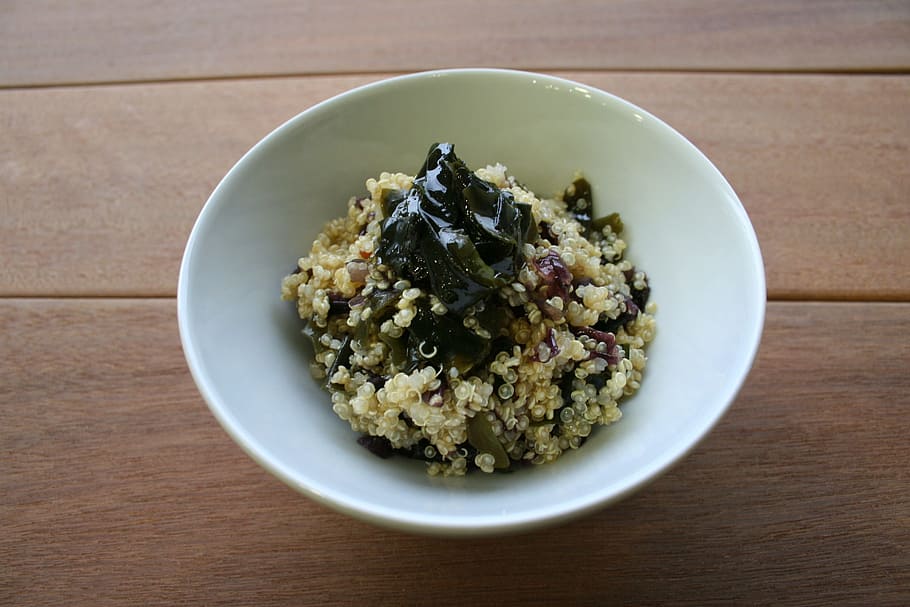Do you like California Maki? How about some sushi? Do you eat the thin, green thing binding the ingredients together? That’s what the Japanese call Nori, or edible seaweed. This food is from the red algae seaweed and covers or binds sushi rolls, and as toppings in other dishes. It looks odd but what does it contain? Is roasted seaweed and diarrhea a common combination for this?
Fun fact: The process of making sushi is like the process of making paper. Shredded seaweed is rack-dried to make the thin, crispy ingredient that people grew to love.
Nori is full of nutrients. Some of these include
- Carbohydrates
- Fiber
- Protein
- Riboflavin
- Thiamine
- Iodine
- Sodium
- Iron
- Manganese
- Niacin
- Copper
- Phosphorus
- Magnesium
- Potassium
- Calcium
- And more, depending on the type of seaweed that you take.
Isn’t amazing to consider when you think that you ate a green sheet of paper? Let’s highlight some nutrients such as Iodine, Sodium, and Fiber.
The Big Three
Sodium is a prominent part of the table salt, being that its scientific term is sodium chloride. You might have come across a “low sodium diet” which is bland and unappetizing for many people. It is one of the things avoided by people with heart disease or hypertension.
Did you know that dried seaweed contains around 312 mg of sodium per serving?
Another prominent component of dried seaweed is iodine. Iodine is important for body metabolism and in the functions of the thyroid gland. The thyroid functions depend on the iodine levels of the body.
There are some noticeable symptoms of a malfunctioning thyroid gland. Examples of such are weight change, fatigue, or the swelling of a part of a neck after a long time.
An extra function of iodine is for the brain development of babies during pregnancy. So if you are pregnant, be careful about your iodine levels.
A bonus component of seaweed is the presence of Tyrosine. It is an amino acid used by the body to help the thyroid gland function properly.
Roasted Seaweed and Diarrhea
Time and time again, fiber relates to gut health. It serves as the food by the local gut bacteria which digests it and aids in the movement of the bowel.
But is it diarrhea?
The soluble fiber in dried seaweed gathers and binds the water in the gut area to make poop easier to excrete as well as by making it softer. This is the type of fiber seaweed is particularly high in, which is good.
For some people who aren’t used to the fiber in their gut, it might feel like they are having diarrhea. Some people actually get diarrhea! (although not common)
Nori provides a crispy seafood taste to dishes when added. You can find flavored and crispy nori that you can eat right off the pack. Plus, it tastes odd but in a good way.
It’s a given to use roasted seaweed to sushi dishes. But, here are some tips on how you can add nori without the sushi or the rolls:
- Mince your nori and top it to your fried rice along with scrambled egg
- Cut it into strips and add it to your Japanese-styled salad with the lettuce, Japanese mayonnaise, some carrots and crabsticks
- Add it to your ramen bowl
- Use it to wrap your rice – this is something like onigiri
- Eat it as a snack. Plain and simple.
Take it Moderately
Some words of caution though. As with other food and nutrients, too much of one thing may lead to problems rather than the solution. People with hyperthyroidism or those at risk with high thyroid activities have to be careful with seafood and other food rich in iodine. They have to be strict with their diet and ask a professional dietitian or their physician about their iodine consumption limits. And even if the person does not have enough iodine in the body, it is not an excuse to binge eat nori. It is high in sodium and fiber. Also, too much fiber can cause gas, bloating and constipation.
Roasted seaweed and diarrhea is an unconventional pairing but it sometimes happens. Nori is a nutrient-packed ingredient and is a good source of iodine, sodium, and fiber, but it is not a reason to eat too much of it.
Do you like to add roasted seaweed to your dishes?
[thrive_toggles_group”][thrive_toggles title=”References” no=”1/1″]https://www.medicalnewstoday.com/articles/323916.php https://www.livestrong.com/article/470501-what-are-side-effects-of-eating-seaweed/ https://www.healthline.com/nutrition/benefits-of-seaweed https://www.livestrong.com/article/401247-is-dried-seaweed-good-for-you/ https://www.livestrong.com/article/502326-what-are-the-benefits-of-roasted-seaweed https://www.healthyfoodtribe.com/benefits-of-roasted-seaweed-nori/[/thrive_toggles][/thrive_toggles_group]



